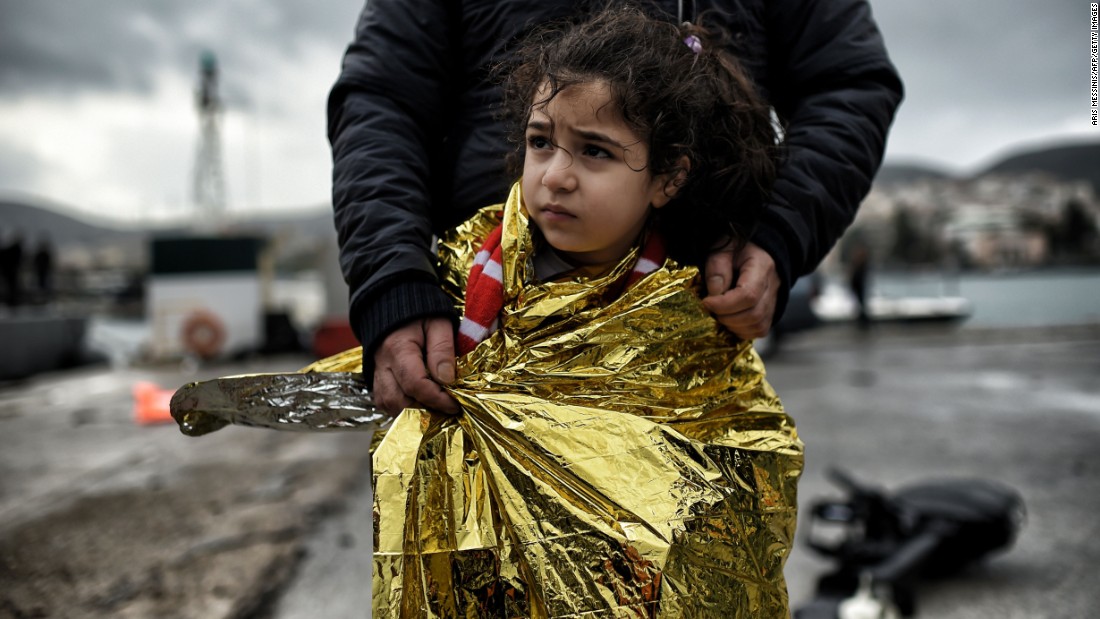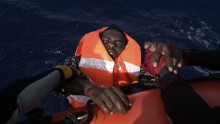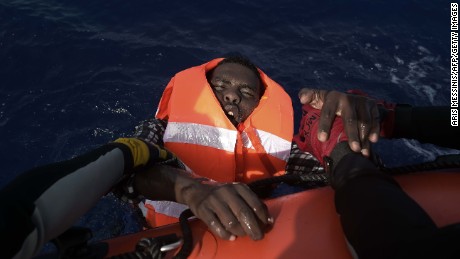How some European countries are tightening their refugee policies
Before it was halted in the courts, his initial order -- which banned travel for citizens of seven Muslim-majority countries, barred all refugees for 120 days, and refugees from Syria indefinitely -- caused chaos at airports and prompted outrage around the world.
German chancellor Angela Merkel warned against imposing a "general suspicion" on all Muslims; French Foreign Minister Jean-Marc Ayrault said that welcoming refugees was "a duty of solidarity."
But many European countries are beginning to curb their own refugee programs, after years of pressure caused by high levels of migration.
At least 12,472 refugees and migrants have arrived on Europe's shores since the beginning of 2017, according to the UN refugee agency -- only slightly less than the 12,587 Syrian refugees admitted by the US in all of last year.
Since the arrival of over one million migrants and refugees in Europe in 2015, governments across Europe have sought to fortify their countries' borders with fences, walls and guards against future mass migrations.
"The year 2015 must not be allowed to be repeated," said Austria's Defense Minister Hans Peter Doskozil.
Live TV

Live TV
International Edition
U.S.
International
Arabic
Español

A father stands with his daughter as refugees and migrants arrive on the Greek island of Lesbos after crossing the Aegean Sea.
How some European countries are tightening their refugee policies
Updated 1636 GMT (0036 HKT) February 22, 2017
(CNN)US President Donald Trump is expected to sign a new executive order this week that would temporarily halt travel from citizens of seven nations he says pose a high risk of terrorism.
Before it was halted in the courts, his initial order -- which banned travel for citizens of seven Muslim-majority countries, barred all refugees for 120 days, and refugees from Syria indefinitely -- caused chaos at airports and prompted outrage around the world.
German chancellor Angela Merkel warned against imposing a "general suspicion" on all Muslims; French Foreign Minister Jean-Marc Ayrault said that welcoming refugees was "a duty of solidarity."
But many European countries are beginning to curb their own refugee programs, after years of pressure caused by high levels of migration.
At least 12,472 refugees and migrants have arrived on Europe's shores since the beginning of 2017, according to the UN refugee agency -- only slightly less than the 12,587 Syrian refugees admitted by the US in all of last year.
Since the arrival of over one million migrants and refugees in Europe in 2015, governments across Europe have sought to fortify their countries' borders with fences, walls and guards against future mass migrations.
"The year 2015 must not be allowed to be repeated," said Austria's Defense Minister Hans Peter Doskozil.






 U.S.
U.S. Arabic
Arabic





No comments